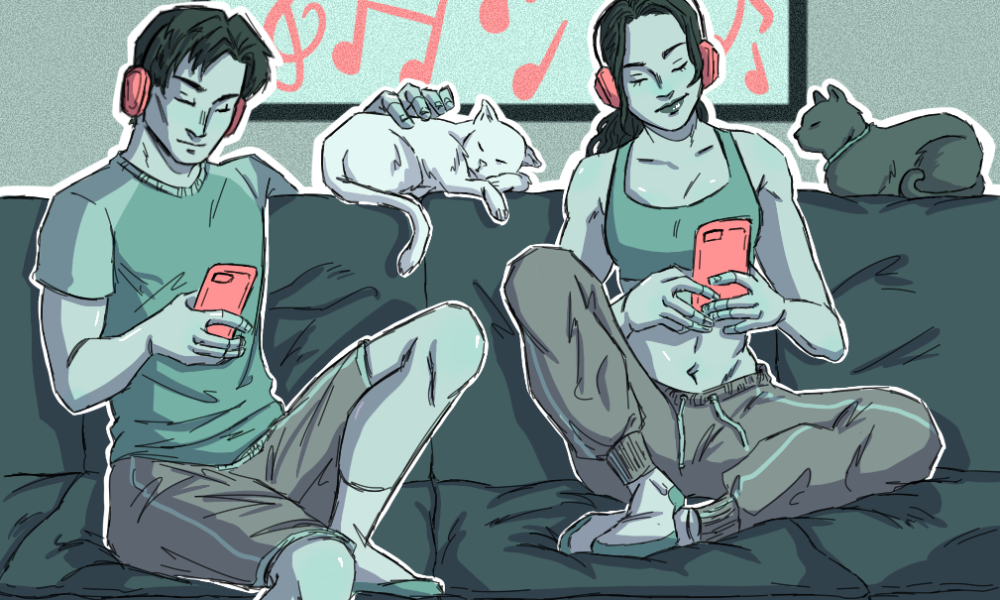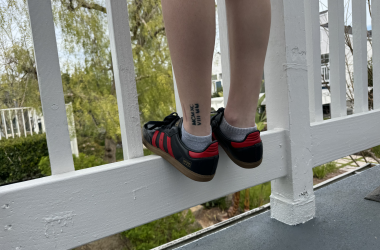For many people, music is a way to leave worries, regrets, and anxieties of the real world behind.
The same held true for me, though the music I use as an escape is unconventional.
When you think of a singer or an artist, naturally a human pops into mind. I mean, who else is gonna sing a song? Aliens?
There is a special software called Vocaloid, something many people into internet meme culture may be familiar with. Vocaloid is a Japanese computer voice synthesizer program that allows you to have a virtual voice sing your songs.
Each voice in Vocaloid’s databank is their own “character” personified as an anime boy or girl depending on the voice. By far the most popular at the moment is a twin-tailed blue-haired girl called Hatsune Miku.
I discovered Hatsune Miku and Vocaloid back in elementary school. During the early 2000s, anime wasn’t seen as cool or popular. While anime now has arguably entered the mainstream with shows like “Attack on Titan” or “Demon Slayer” back in the day, liking anything besides a show like “Naruto” automatically made you an outcast.
If anime was already looked down upon when I was growing up, I can’t imagine what they would think if they found out I was listening to Hatsune Miku.
However, due to its existence as software, Vocaloid was able to explode in Japan and over the years in the Western world as well.
Anyone can purchase and download the software, opening up an avenue for aspiring composers to create songs with lyrics that they otherwise wouldn’t be able to.
Before, having lyrics or a message in a song required finding a singer or being a singer yourself, and having the necessary and expensive equipment to record it clearly.
The Vocaloid voice itself has no emotion of its own, but it serves as a portal into the mind of the composer. It gives a voice to the voiceless.
This was what appealed to me and allowed me to connect to so many Vocaloid songs.
One of the songs that I deeply connected with was “Lost One’s Weeping”, utilizing the Vocaloid voice Kagamine Rin, produced by Neru.
The lyrics talk about the pressure, anxiety, and depression that stems from school, being focused more on results and grades rather than the overall well-being of a student.
When the student in the song tries to find themself or what they want to do, they ask if anyone has the answers, to no response.
“Lost One’s Weeping” ends with the lyrics:
Do you remember the formula for area ratio?
Do you remember the dreams of your childhood?
Who threw those dreams in a ditch?
Who was it!? You know who it was!
When are you going to grow up!?
What is a grown-up anyway?
Who has the answers?
I was a lost kid growing up. I had a good group of friends, interests, and hobbies, but my grades were abhorrent. Some of it was from lack of trying, but I felt too confined under the school system and didn’t mesh well with the teaching style and rigid scheduling.
It was only after going to a community college that I cleaned up my act and transferred to Long Beach State.
Without much help from teachers or counselors who didn’t understand why I was struggling and offered band-aid solutions like summer or winter classes, “Lost One’s Weeping” was a song I deeply connected with.
As strange as it is to say, listening to a voice void of life generated by a computer gave me more comfort in those trying times than anything else. I felt like I could share my pain and struggles with someone.
This is just one of the thousands of songs in any genre or tone you could possibly think of. Anyone with the time can craft a song, complete with vocals to tell the world what’s lying in their heart.
Although it may not be for everybody, it helped at least one failing student have some respite.




